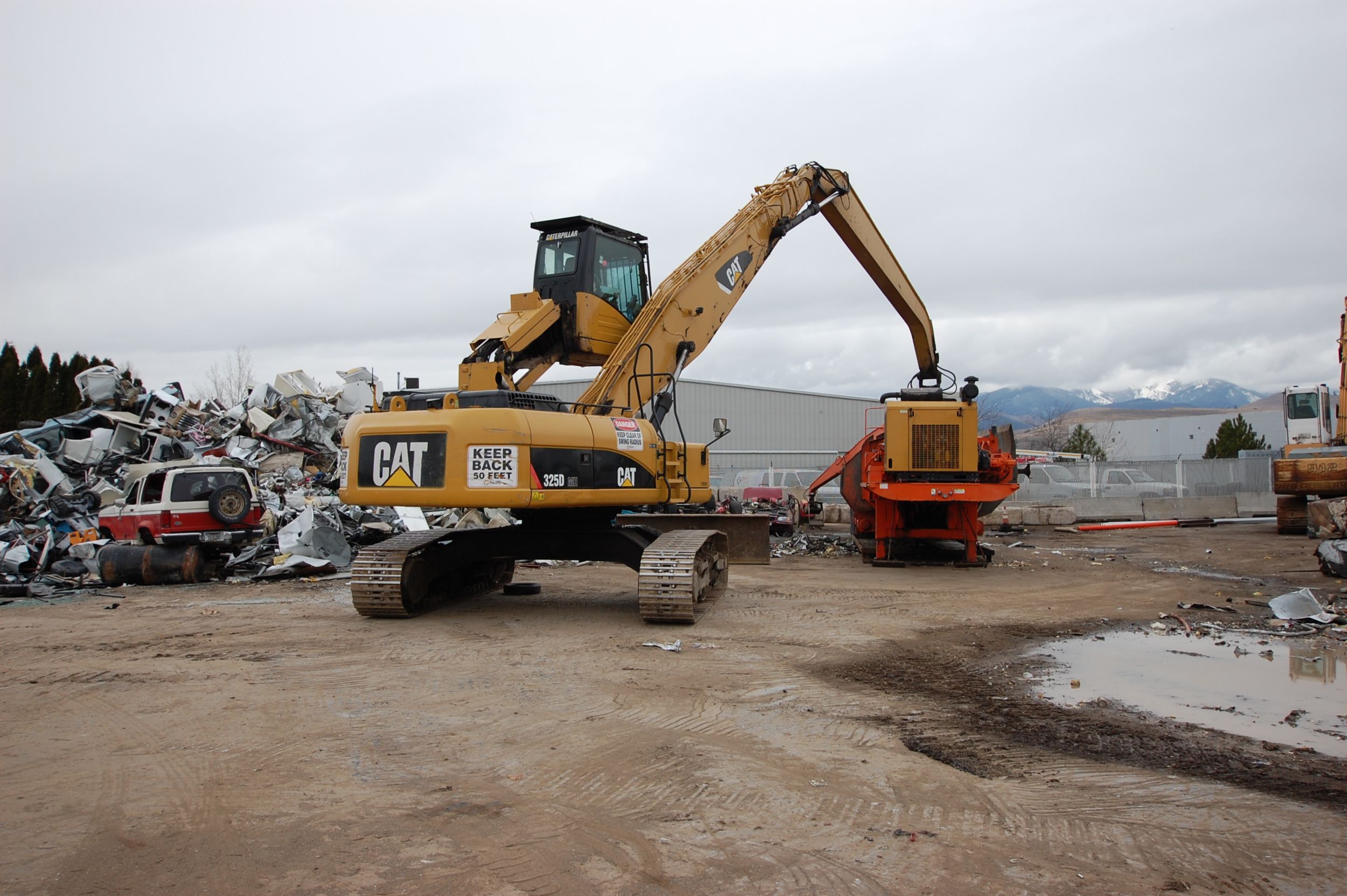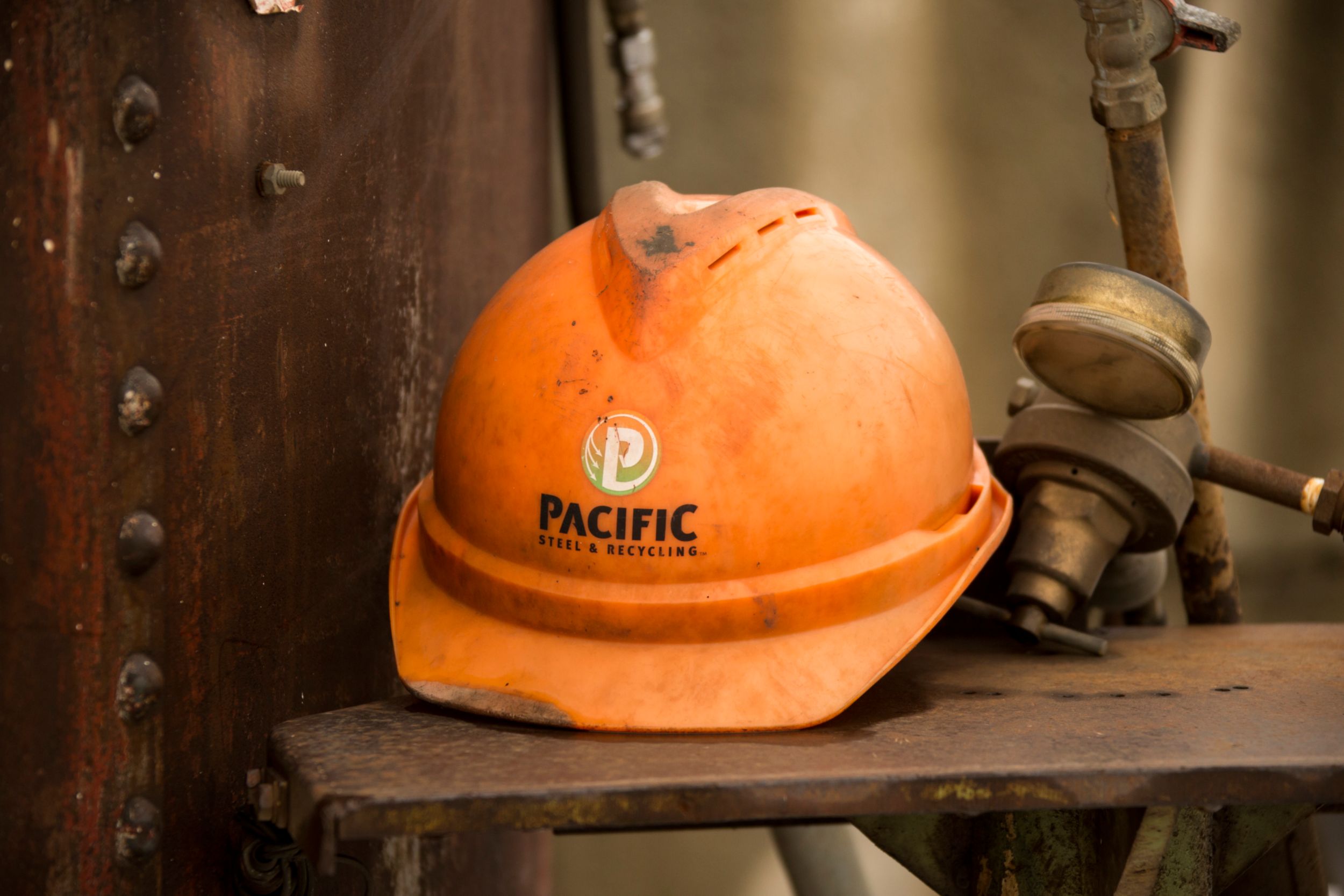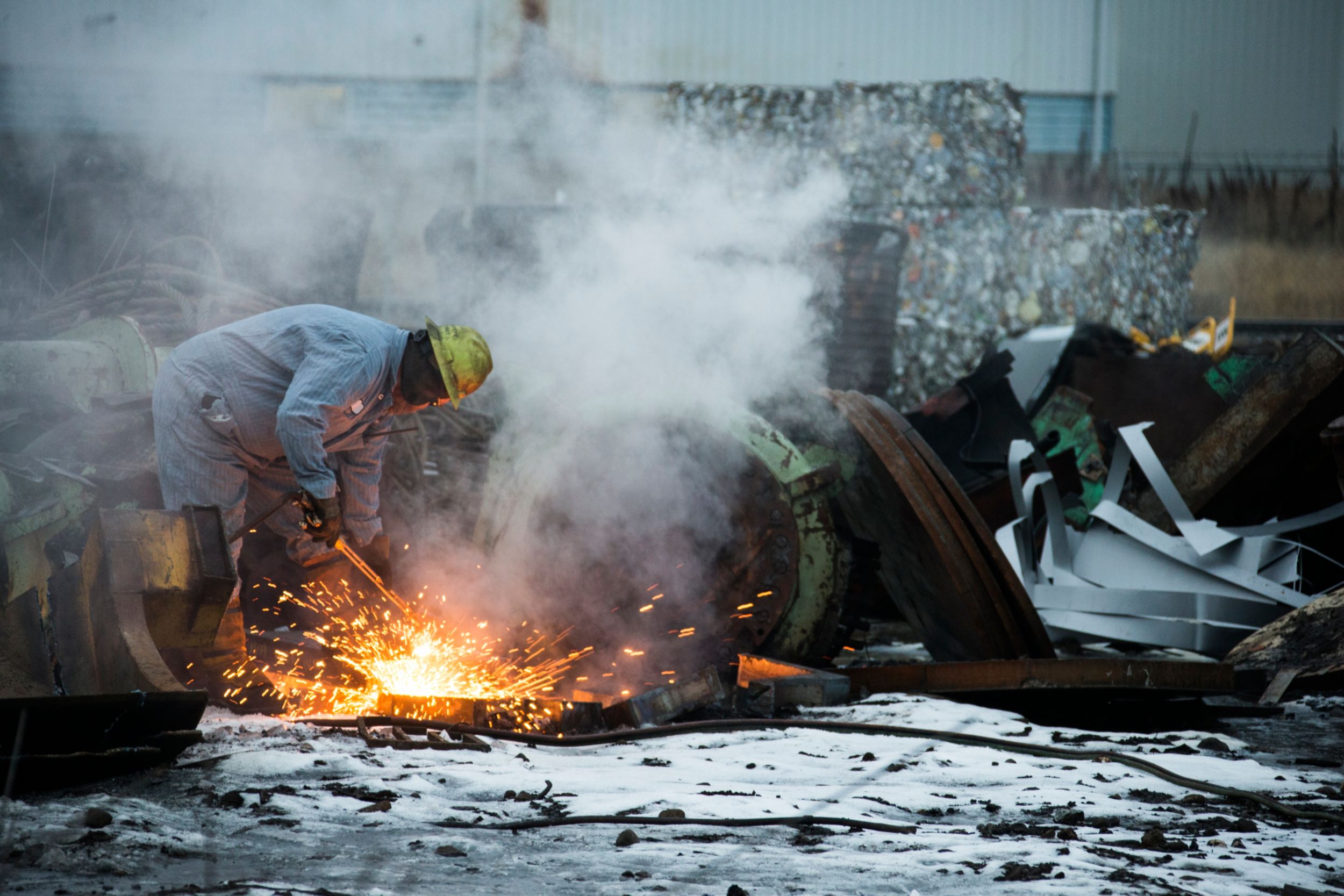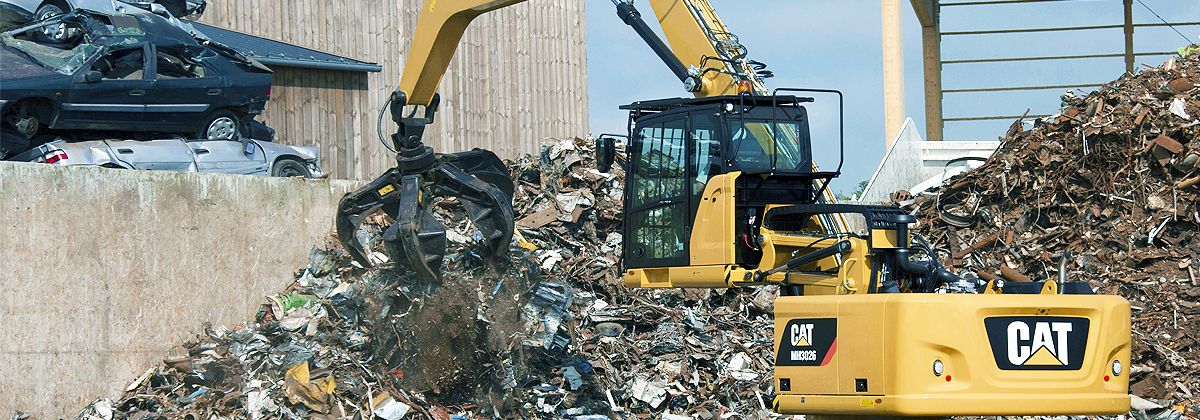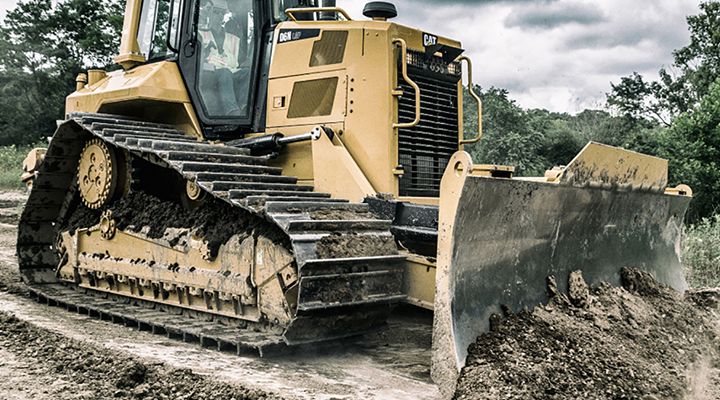If you already have an existing account with another Cat App, you can use the same account to sign in here.
One Account. All of Cat.
Your Caterpillar account is the single account you use to log in to select services and applications we offer. Shop for parts and machines online, manage your fleet, go mobile, and more.
Account Information
Site Settings
Security
Pacific Steel & Recyclking Relies on Fleet of Cat® Equipment to Increase Inventory Turns and Lower Processing Costs
Pacific Steel & Recycling knows how to survive big changes in its core business. Founded in the 1880s, the company started out as the Pacific Hide and Fur Depot, operating a far-flung network of trading posts for trappers of wild-caught furs. When changing fashions and the rise of fur farms put a squeeze on that business, Pacific reinvented itself as a metals recycler. Today, the employee-owned company, with nearly four-dozen scrapyards across the U.S. Northwest, is once again adapting to big changes in its core business. As it works to meet those challenges, Pacific is relying on its extensive fleet of Cat® equipment to help it increase inventory turns and lower processing costs.
Young or old, every visitor who has ever toured Pacific Steel & Recycling’s scrapyard in Missoula, Montana while Mason Mikkola has managed the site has been eager to see the same thing right away.
“They all want to watch the cars get crushed,” Mikkola says.
To the untrained eye, the process looks like an act of pure destruction. A Cat 325D MH – a track material handler with a hydraulic cab riser that can lift the operator up as much 18 feet, increasing jobsite visibility and safety – pluck a vehicle off a twisted pile of car carcasses. The M325D MH then swings around and lowers the vehicles into the maw of a car crusher manufactured by a third-party supplier but powered, here in Missoula, by a Cat C6.6 six-cylinder engine.
Then the fun part – the flattening – begins.
As they watch, many spectators learn for the first time that what they’re witnessing is not the end of something with no value but the beginning of something very valuable indeed: the creation of a reliable supply of recycled metals that feeds domestic and foreign steel mills and accounts for more U.S. exports in dollar terms than U.S.-grown corn, according to the U.S. Department of Commerce’s Bureau of Economic Analysis.



It’s not alchemy – the medieval quest to turn base metals into gold. But recycling is awfully close. It’s a good industry: good for the economy, good for the country and good for the environment.
But it’s a good industry in the midst of bad times.
The past few years have been challenging for recycled metals processors everywhere. Pacific is no exception. As the Chinese economy’s once-roaring growth rate has moderated, curbing that country’s once-insatiable appetite for every commodity imaginable, the pain has quickly spread to processors of recycled metals, which have watched scrap prices plunge while the need for scrap, domestic and overseas, has plummeted.
Demand is down. So, too, is supply. With the price of scrap at a 23-year low, some potential sellers are sitting on their inventories of old vehicles, appliances and other metal waste, hoping prices will rebound. Tonnage passing through Pacific’s facilities, which can handle 500,000 tons are year, is off 30 percent. “A lot of people are holding their tons,” say Patrick Kons, head of the Pacific’s scrap operations.
Pacific has been through downturns like this before – and not just in the metals market.
Founded in the 1880s, the company started out as the Pacific Hide and Fur Depot, operating a far-flung network of trading posts for trappers of wild-caught furs.
When changing fashions and the rise of fur farms put a squeeze on that business, Pacific reinvented itself as a metals recycler. “The genius of it was when the technology and demand changed and we had to move away from fur and hides into scrap and steel, we kept the network and the locations,” says Kons.
“It gives us a really unique footprint and some real advantages in a market like this.”
“WE’VE GOT A NICE FLEET OF FUEL-EFFICIENT EXCAVATORS AND WHEEL LOADERS FROM CAT.”
In the nearly 125 years Pacific has been in business, it has learned that slumps never last forever and that they represent a real opportunity for companies with the financial strength and operational discipline to wait them out. Mikkola, the manager of the Missoula yard, says workers at Pacific – owned 100 percent by its employees – have long had a strong incentive to push to be ever more efficient. “But in these markets,” he says, “it’s even more important.”
Pacific’s strategy in the current cycle is to focus on efficiencies. “Our model right now is to do more with less,” says Kons. “If it doesn’t help us make more money now or give us the potential to make more in the future, we’re not going to buy it.”
No surprise, then, that Pacific’s 150-piece equipment fleet is heavily skewed toward fuel-efficient Cat loaders, forklifts and material handlers.
“When we save a mile per gallon or a gallon per hour, it becomes a big number,” says Kons.
Man hours per ton of metal processed is another metric Pacific scrutinizes – and another area where Kons says Cat equipment is helping the company achieve targeted efficiencies. “Our production rates need to be as good as anybody out there if not better,” he says. “That’s what we strive to do every day.”
Jeff Millhollin, Pacific Steel & Recycling’s CEO, has also issued a challenge to the company’s roughly 740 employees, who are spread out over nine states and one Canadian province and become fully vested part owners after seven years on the job.
“He’s told them: ‘Look for ways to save $10 a day or even $10 a week,’” says Tina Nolevanko, Pacific’s corporate development coordinator. “You take 743 employees and that can add up to a big savings and at the end of the year it goes into our own pockets.”
RELATED ARTICLES
You’re here to get ideas to grow your business. Read on for machine insights and expert tips and tricks to get more out of every job.
-
Who says Blades are Boring?
Today’s dozer blades are sophisticated tools. And you can’t make money without them—which makes them far from boring. So before you choose a blade, give some thought to how the decision could affect your bottom line.
Learn More -
Cat® H180ES Hammer Breaks New Ground In Norway
The Cat® H180ES Hammer is helping to clear the way for Norway’s largest ongoing infrastructure project.
Learn More -
High Demand for High-Reach Demolition Machine
Extended reach, quick-change work tools and a safety-first cab— that’s the Cat 340F UHD.
Learn More -
U.S Recycler Boosts Daily Productivity Using New Cat Scrap Shear
Rivers Edge Scrap Management increased productivity, service and resale value with Cat.
Learn More


